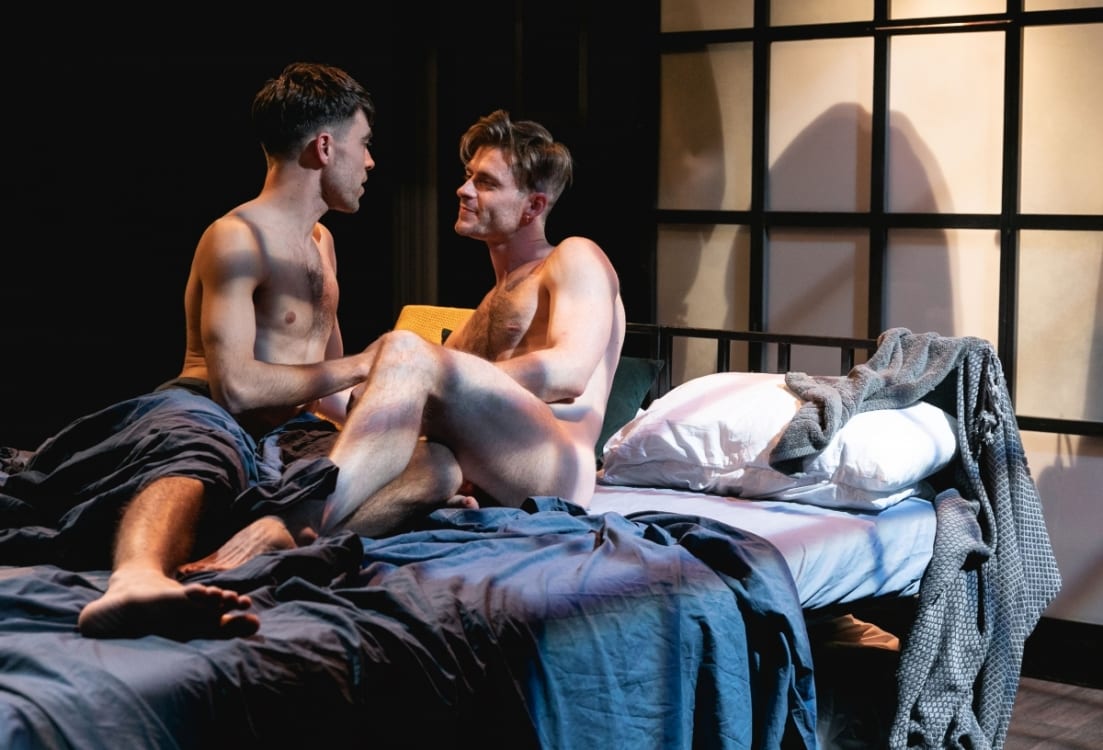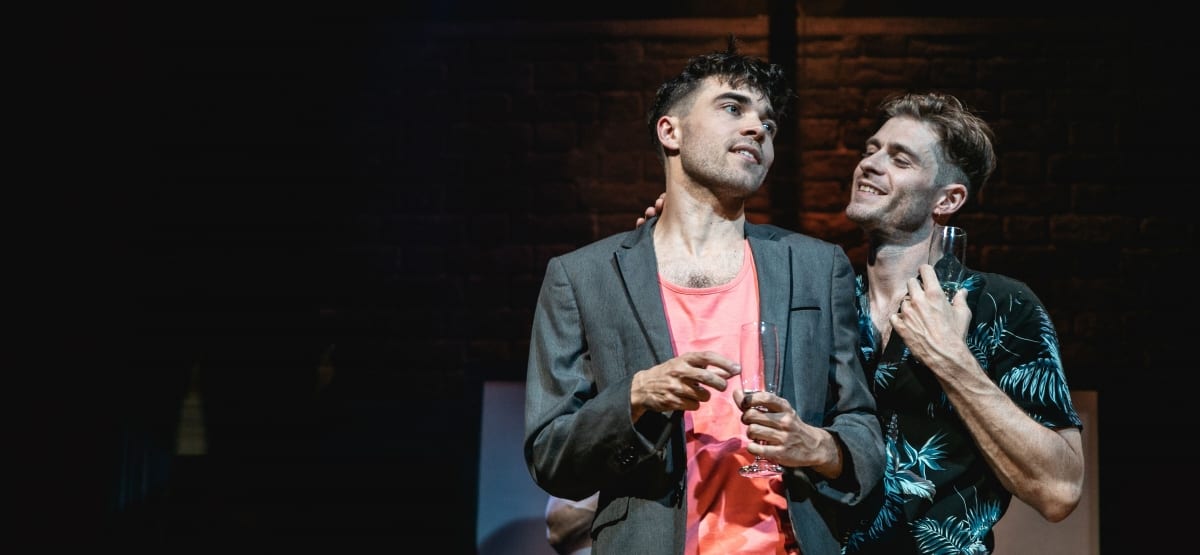Afterglow enjoyed a very successful off-Broadway run in 2017-18 and now opens with a new cast and creative team at the Southwark Playhouse and a major media fanfare ahead of its arrival. It is a play of sheen and surfaces, which while aiming to go deep below them in the end does not deliver, despite some fine creative contributions from the three excellent actors and a talented supporting team.
Alex (Danny Mahoney) and Josh (Sean Hart) are a married gay couple in their mid-30s, who appear to have everything in their lives sorted – professional careers launched, a lovely Manhattan apartment, and a surrogate child on the way. Above all they seem entirely secure in each other, so secure that they have declared their relationship to be open. We see that with startling immediacy in the opening scene as they conclude a threesome with Darius (Jesse Fox), a younger masseur they have just met.
It is an exhilarating opening scene to be sure – the confident, un-self-conscious nakedness of three very good looking actors is a refreshing tonic in a theatre world where nudity is still so often hedged around with anxiety. It is also a great relief to be witnessing a gay-themed play which takes its sexuality as a given, not a problem, and which is for once not focused on the dilemmas posed by AIDS/HIV and coming out. But despite this strong start, the writing and the characters and indeed the crux of the plot never really take off convincingly.
As Josh and Darius fall for each other and place the marriage of the older couple under strains that no one predicted, the dialogue and plot outcomes follow very predictable, even stereotypical lines in which the spoilt puppyish narcissist, Josh, tries to juggle all options, putting at risk what he has while also damaging those he claims to love. There are interesting possibilities to explore here, but the role of dating apps and an urban culture of constant possibilities for trading up are only briefly touched on, the backstories of the characters are only slightly developed, and the extent of the willing complicity of the other two players in their own sufferings is hardly addressed. Above all the dialogue is rarely humorous and often as flat as the stomachs of the handsome actors delivering it, sometimes even just full of emotional clichés. It is telling that all three actors are much more emotive and revealing in gesture and expression off the speech and at the fades at the end of scenes, than in their speeches and exchanges.

The likely problems of a three-way relationship are set out in a key speech by Darius near the start, and in a sense the rest of the play is an anti-climax, fulfilling the terms of that prophecy. Where interest is preserved though is in the movement, set and sound design. This theatre is a small space, here arranged with the audience on three sides of the thrust stage. Libby Todd’s design makes a real virtue of these constraints, using great economy of forms to suggest a bedroom with a double bed, a roof terrace and a massage parlour, among other credible locations. There is also an onstage shower, used to notable effect at intervals, though at one point it came to dribbling life unprompted. These effects are enhanced notably by Joel Price’s sound design, where the traffic sounds of Manhattan drift in and out of our consciousness, and very apt disco soundtracks are deployed both to intensify mood and to cover the frequent (perhaps too frequent?) scene changes conducted by the actors.
In fact on the technical side this is an astute production throughout. The three actors have excellent accents, a credit to the dialect coach, and glide about with great freedom, grace and plausibility on the small stage, thanks to movement director Lee Crowley. What is missing here in the direction and the writing was any deeper explanation of motivations, and – above all – a sense of the minute shifting transitions and re-calibrations in the key relationships that are needed to bring these characters alive.
Here an instructive comparison can be made with The Inheritance, the memory of which will still linger powerfully in the minds of many in the audience. What made Matthew Lopez’ writing so much more effective and widely affecting was the way in which less was made more – sex was portrayed in the abstract, character features and flaws were deftly shown not just narrated, and the audience was made to work a bit so as to gradually join up the dots. Whereas in this play, the glossy surfaces certainly glittered and shimmered, but ultimately revealed far less psychological depth or human insight, despite sterling efforts by a very able group of performers and creatives.

